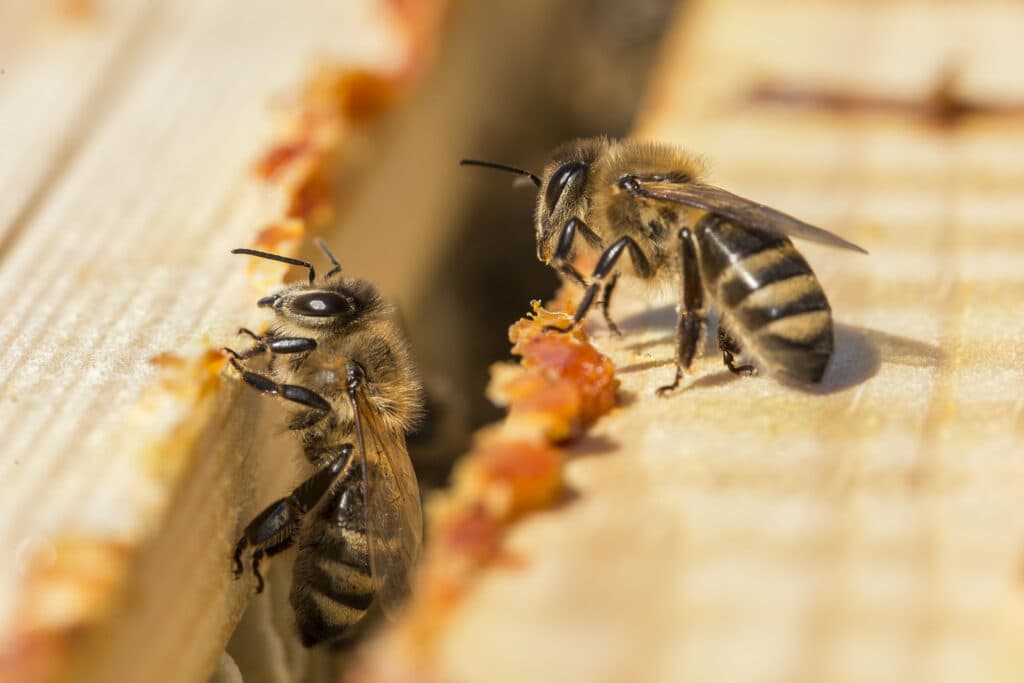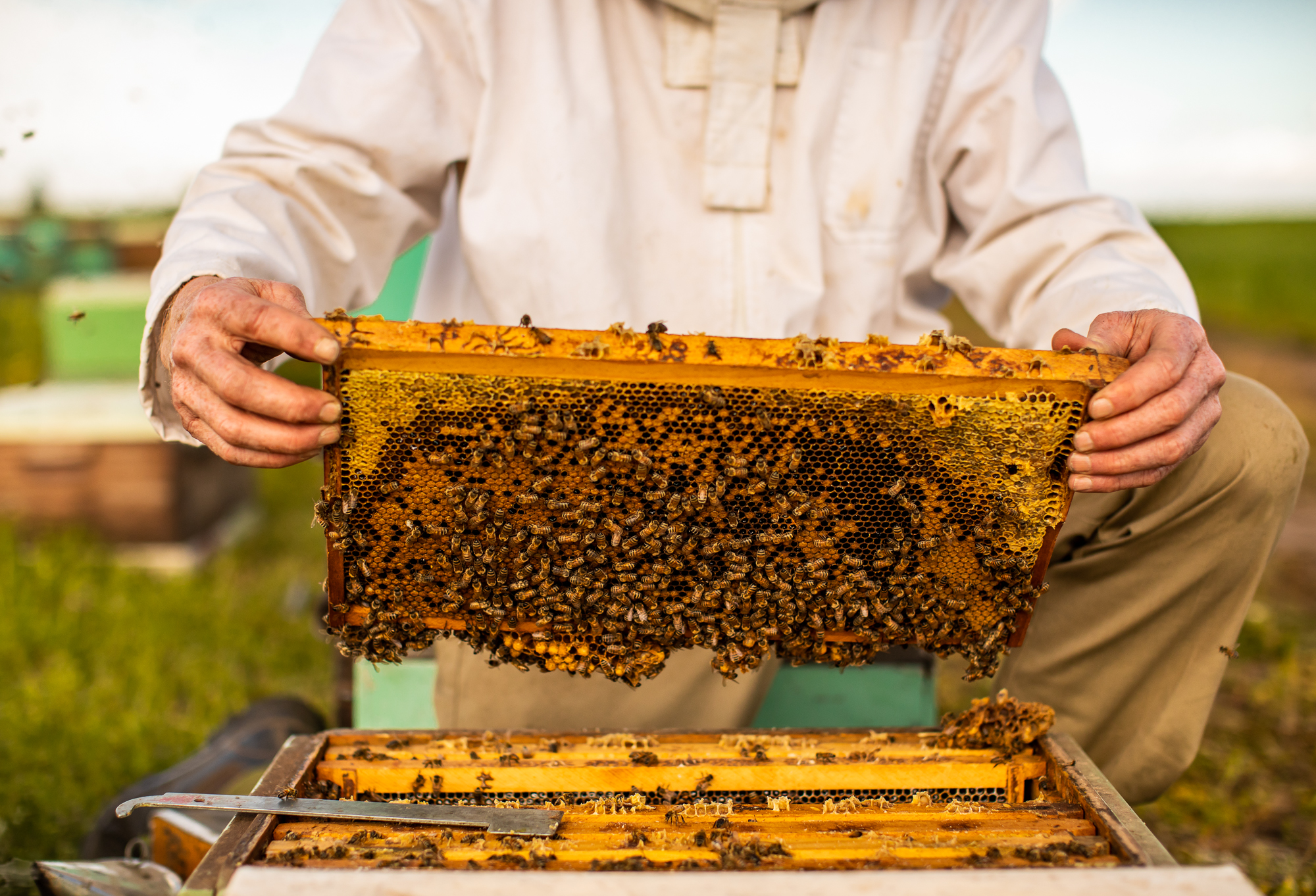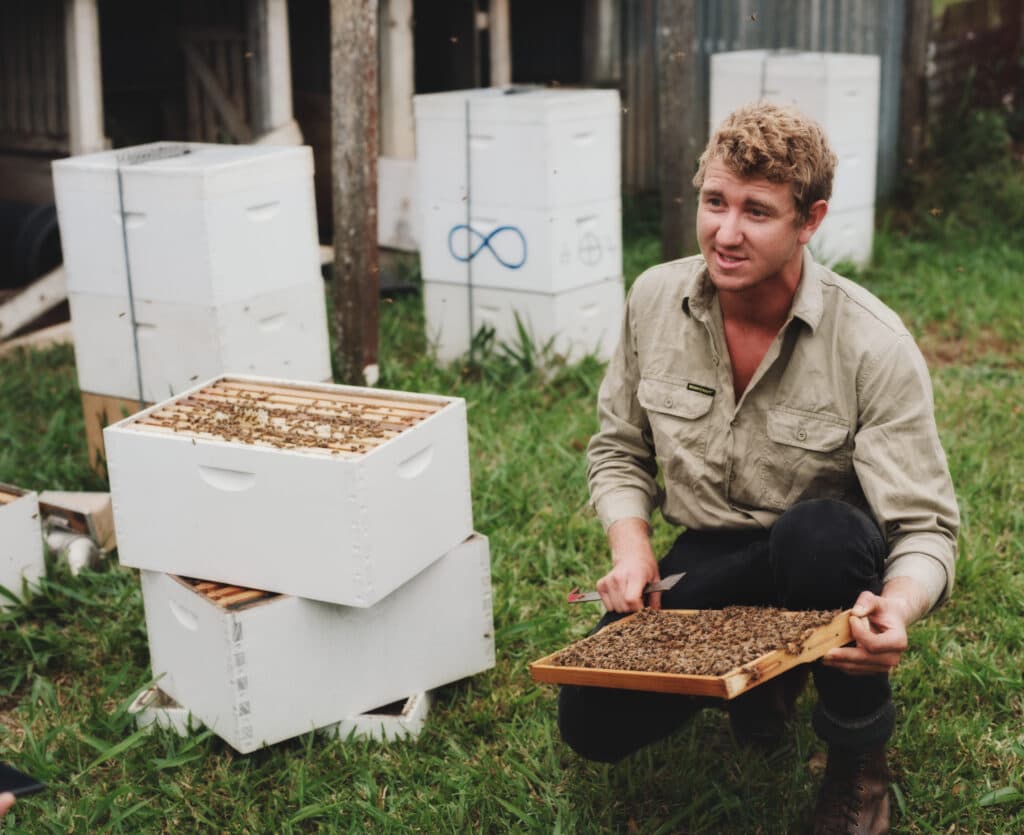AgriFutures Australia’s, Manager Research, Annelies McGaw is encouraging applicants to consider applying for projects and professional development opportunities that will provide industry wide benefit.
“Over the past 12 months, the Program has invested in eight industry development grants that will have a positive impact on the industry.”
“It has been exciting to see what previous recipients have achieved through the grants program, and how they have boosted the resilience of the honey bee and pollination industry, helping safeguard it against future adversities,” said Annelies.
Products from the hive
Inspired by AgriFutures’ funded research into the market and production potential for propolis, Jessica Berry from Hive & Wellness received a 2020 Industry Development Grant to investigate opportunities for Australian beekeepers to generate an additional income stream from the commercial production of propolis.
Propolis is a resinous mixture produced by honey bee from saliva, bees wax and tree bud exudate, and despite being used for millennia in traditional medicines, dietary supplements and cosmetics there is currently no commercial propolis industry in Australia.
“With sales of retail propolis products in Australia exceeding $20 million, and the majority of the propolis raw material coming from overseas sources, Australian beekeepers deserve a bigger slice of this market. And the opportunity for other international markets,” said Jessica.
“There is a huge opportunity for commercial scale propolis production; Australian propolis is as good, if not better, than the propolis we are currently importing from New Zealand, Brazil, China and Romania.”
With the University of Sunshine Coast’s Honey Lab, Hive & Wellness took the raw material and tested how it could be processed into an economically viable finished good. Matched with in-kind human resources support, the Grant covered the materials required to undertake the project.
“The initial data we were able to generate from the Grant has allowed us to progress to a commercial production trial to deliver a commercial batch of propolis for further product trials and sampling.”
With an aging demographic and the risk of losing knowledge of how to operate a commercial beekeeping business in Australia, Ms Berry says looking at new and emerging opportunities will be critical for the future of the industry.
“Investigating alternative ways beekeepers can value add and diversify their businesses, especially with the trials of drought and bushfires, coupled with focusing on some of the really interesting and innovative aspects of the bee industry, helps to change the perception of the industry. It will go a long way towards attracting younger people into the sector.”
“Collectively we need to showcase that beekeeping it is a viable business to get into. This is where projects like ours come in.”











